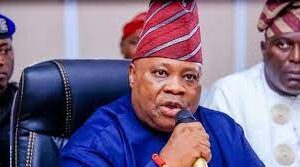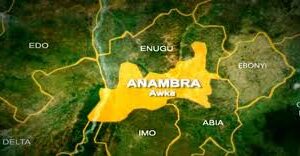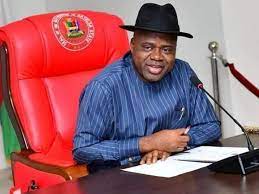The Economic and Financial Crimes Commission (EFCC) has stated why it took on a N1.4 billion fuel subsidy fraud case involving Abubakar Ali Peters and his company, Nadabo Energy Limited.
EFCC chairman, Abdulrasheed Bawa, said this, Tuesday, in his testimony as a prosecution witness at the trial of Peters and his firm, held at the Lagos State High Court, Ikeja.
The defendants face 27 charges of using forged documents to defraud the federal government under the fuel subsidy scheme in 2012.
EFCC alleged that Peters and his firm inflated the volume of Premium Motor Spirit (PMS) they had imported to fraudulently claim about N1.4 billion from the government under the Petroleum Support Fund.
A statement by EFCC’s spokesperson, Wilson Uwujaren, said Bawa, who has been appearing in the case as the fifth prosecution witness, was cross-examined by the defence team at Tuesday’s proceedings. This came after Bawa concluded his evidence-in-chief on December 20, 2021.
Fielding questions from the defence counsel, E.O. Isiramen, under cross-examination, Bawa stated that the probe into the alleged fraud was triggered by a series of petitions received by the commission. He also cited a legal provision empowering the anti-graft agency to launch a probe against a person without receiving any petition.
He confirmed that the law firm of Femi Falana, a prominent Senior Advocate of Nigeria, and a former senator, Dino Melaye, who was then running an anti-corruption-focused civil society group, were among the authors of the petitions received by EFCC.
Bawa also said the agency received a petition from then Minister of petroleum, Diezani Alison-Madueke, regarding the fuel subsidy fraud.
The defence lawyer had sought to know whether it was Melaye’s petition that triggered the investigation of Peters and Nadabo Energy. Bawa had responded by saying that it was not just the former senator’s complaint, adding that there were others from Falana’s law firm and the then petroleum minister prompting the commission to take on the case.
Isiramen also asked whether the defendants were mentioned anywhere in the petitions, and if it was not the Nigerian National Petroleum Corporation (NNPC) that was the subject of the allegations raised in the petitions.
Responding, Bawa said, “We just did our investigation acting on the petition.”
But in his response to another question, Bawa confirmed that the EFCC could investigate an individual even when the person is not directly accused in a petition. He cited section 7 (b) of the EFCC Establishment Act, to back his claim.
“The act gives the EFCC special powers to cause an investigation involving any individual whose lifestyle is not commensurate with his source of income,” he said.
Asked who determines the measure of a person’s lifestyle, the EFCC chair said, “Intelligence based on what we know about the person that his lifestyle is not commensurate with his known source of income, then, the EFCC can cause an investigation to be carried out. Also, the EFCC can cause an investigation on anybody who is believed to have done something wrong against the EFCC Act.”




